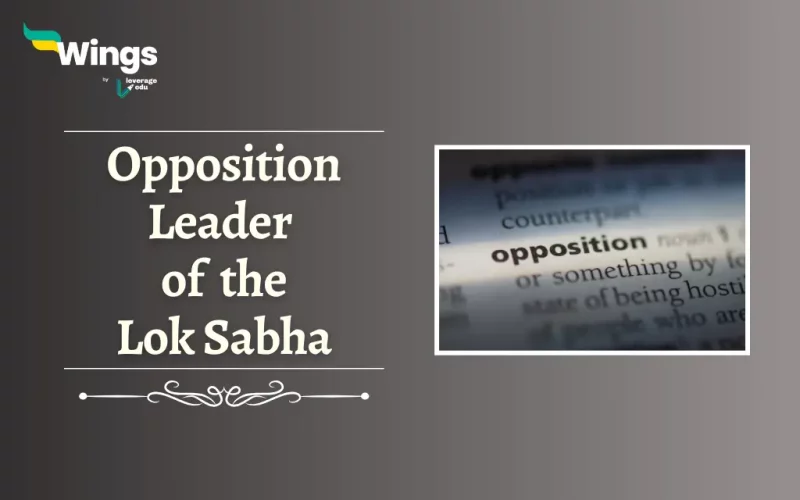In Indian parliamentary discussions, the leaders of both the Opposition as well as the current Ruling party have very important roles. The Opposition leader needs to and also actively participate in decision-making as well. Moreover, they give critical perspectives on government proposals and guarantee to hold the Ruling party accountable in situations. Furthermore, the Opposition Leader of the Lok Sabha in India is the head of the largest non-governing party only if they have at least 10% of the seats. In addition, since the 26th of May 2014, this position has been vacant as no party has met the requirement.
History of Leader of Opposition in India
The Salary and Allowances of Leaders of Opposition in Parliament Act of 1977 gives the Opposition Leader of the Lok Sabha many benefits.
- The Opposition party must hold at least 10% of the total seats for official recognition in either house.
- This 10% must be met by a single party and not an Alliance.
- The Opposition Leader conducts meetings to discuss policies, scrutinize bills, and present alternative policies.
- Moreover, they also select shadow ministers from the Opposition.
Historically, the position has roots in the Central Legislative Assembly of British India, with leaders like Motilal Nehru.
- The 1977 Act formalised the role and benefits of the Opposition Leader.
- Thus, characterising them as the members leading the largest opposition party.
Also Read: 4 Types of Majority in Parliament in India
How is the Leader of the Opposition Selected?
The Selection of the Leader of the Opposition is based on different criteria. Moreover, it is a debated issue within the Indian Parliament. According to the Indian Constitution, this position is supposed to be statutory hence sparking significant debate and discussion.
- In addition, the INC, India’s oldest party has the second-highest number of seats in the Lok Sabha, but has been unable to appoint a Leader of the Opposition for two consecutive terms.
- This is because they do not hold at least 10% of the total seats in the Lok Sabha.
- All in all, the decision of the Speaker or the designated opposition leader is deemed final.
- The Speaker of the Lok Sabha cannot recognise an Opposition Leader unless a minimum of one-tenth of the total membership of the House is held.
Related Blogs
Lastly, we hope you liked our blog and gained an understanding of the Opposition Leader of Lok Sabha in India. Moreover, you may even read more blogs and empower yourself with knowledge regarding Civics and Polity!
 One app for all your study abroad needs
One app for all your study abroad needs













